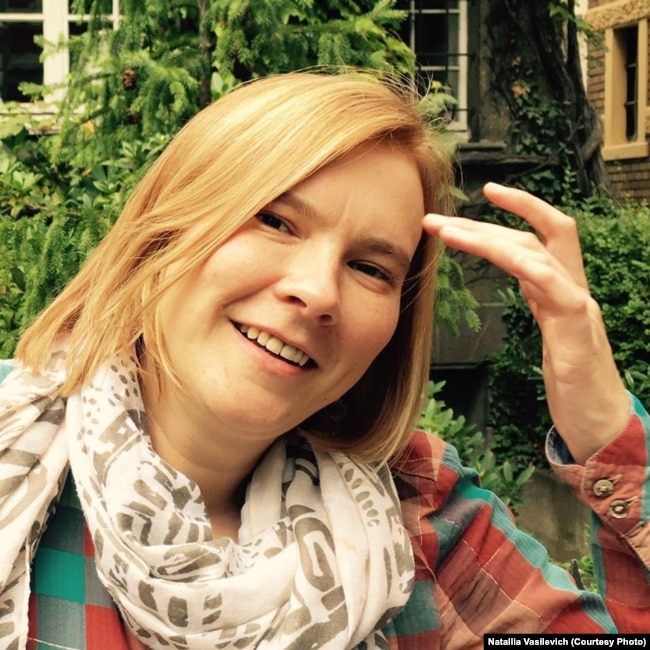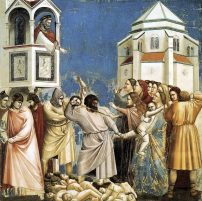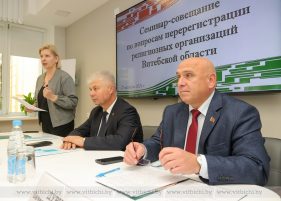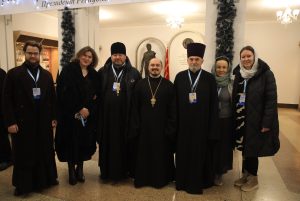“The Incredible 2020s.” Natalia Vasilevich: “Belarusians have learned to become leaders”

Radio Svaboda asked 21 Belarusian intellectuals to share their vision and understanding of the events of 2020, to answer in a broad sense the question “What was it?”. Today we bring to your attention the answers of political scientist and theologian Natalia Vasilevich
SoundCloud
When the Belarusian society experienced a political upsurge in the spring and summer of last year, I realized that my usual political science tools were completely unsuitable for analyzing events.
The Belarusian political scene during the twenties was predictable, events unfolded in cycles, and we learned to explain to ourselves and others why neither the Serbian, nor the Ukrainian, nor the Georgian scenario work in Belarus, and the whole political process goes in a vicious circle: election “liberalization” ”, Elections, Square, dispersal, political prisoners, sanctions, warming and new“ liberalization ”.
Society has adapted to the symbiosis with the regime – living either in parallel realities, or even receiving some compensation from such a symbiosis.
We called this scheme a social contract, “order”, stability.
Natalia Vasilevich
The beginning of spring for everyone became unpredictable, events began to unfold completely uncontrollably.
At first, the whole world watched in horror at the lockdown in totalitarian China, and a month later closed airports and schools, dormitories for students and churches, libraries and shops.
The coronavirus pandemic, as a kind of natural force, invaded life, changed plans, forced to rethink their own priorities.
Weddings and travels, conferences and dissertation defenses were disrupted.
Even superpowers could not cope with the hundreds of thousands of deaths caused by tiny, invisible virus.
Archbishop Artemiy of Hrodna and Vaukavysk, who publicly condemned the violence and supported the protesters
In this context, life itself and the need to somehow rework a cascade of new experiences have made theology in demand.
It began to seem a more adequate framework for the analysis of reality and meaning, as it is a sphere not only of analytical reflection, but of intuitions, “reading of signs”, a sphere of metaphors and myths, invisible subjects and finally – a space of miracle.
Since the beginning of the Belarusian summer, I have stopped reading and listening to political scientists.
I heard the best answers at the many hours of Freedom, where people answered the question why they came here, as well as in the church, in the next reading from the lecture hall.
Abbess of the convent in Hrodna Gavriil treats security officers with cakes, November 10, 2020
There are a number of biblical miracles that biblical scholars have learned to interpret as the result of human virtues, human qualities, and human choice — miracles that have also led to qualitative changes in man himself, in society, and in the reality around him.
The first of these miracles is the miracle of solidarity, the miracle of the multiplication of the loaves.
This story is repeated six times in the Gospel: to feed the people who gathered to listen to Him, Christ took a few loaves and fishes, distributed, blessed and distributed to the people, and there were still a few baskets left.
This miracle teaches that the more we open up to each other, the more we share with each other, the stronger our community is and the more resources it has.
The way Belarusians mobilized for the #bycovid19 medical aid initiative, or later when they brought each other drinking water in June, was a testament to the birth of a new community – a community ready for political action.
Head of the Catholic Church Metropolitan Tadeusz Kondrusiewicz and Orthodox Metropolitan Paul, 2020
The second miracle is the miracle of the “little man”, the miracle of Svetlana Tikhonovskaya. It was in her that the regime saw the weakest and least dangerous figure for itself – unknown to anyone, without professional political experience, without a good team, in the end, a woman, weak, without support, without a strong ideology, with her husband hostage. However, by taking on the mission, the moment she said “yes” to that mission, this woman eventually became one of the strongest politicians, and indeed the “helpless of this world” became capable of unprecedented mobilization. Belarusians have learned to become leaders – just by answering the mission “yes”.
What happened to the Belarusian society?
I would call it initiation.
The people withstood the trials, showed themselves in them as peaceful, solidary, worthy, self-sacrificing – and moved to a new quality.
In the biblical tradition, after the transition and trials, the heroes were given new names.
As Avram became Abraham, so “Belarus” finally became Belarus.
MDLU students stand in a coupler in front of the entrance to their university on October 26, 2020
Very often, when talking about what happened to Belarusians, metaphors of the irreversibility of the process were used: if a baby is born, it is impossible to return it back to the womb;
if the volcano has erupted left, you will not flood it back either;
if you squeeze the paste out of the tube, pushing it back will be problematic.
This is a transition to a completely new form of life, which is best described by the formula “Belarus to Belarus Belarusian”.
In my kindergarten childhood, the word “Belarusian” was inscribed in the derogatory teaser “rabbit, rabbit, Belarusian.” After 2020, the concept of “Belarus” has become synonymous with positive traits, virtues, a sign of quality, a categorical imperative. To be Belarusian is to be brave, to be in solidarity, to be creative, to be on the side of truth and justice, to be the one who responds to the needs of others, the one who is ready to raise his voice against injustice. Such a new – ethical and deep – filling for the “Belarusian national”.
But being Belarusian, moreover, has become dangerous.
Being a Belarusian began to mean being under constant threat of persecution, repression, torture.
Being a Belarusian has started to mean that your life and dignity mean nothing to the state, you can be pulled out of the car and put face down, threatening with a weapon.
They can break into a house and destroy everything there.
May be beaten wildly and not provide medical care.
Being a Belarusian began to mean imprisonment or exile.
A woman injured during the dispersal of a demonstration near the stele “Minsk is a city of heroes”, September 23, 2020
Going through persecution, torture and humiliation by law enforcement agencies, Belarusians realized how important it is for the system to curb the pranks of the state.
Coming through clearly unfair trials with anonymous witnesses, Belarusians realized the importance of a fair and impartial trial.
However, law and justice are not everyone’s business, they are not abstract concepts, but foundations, without which life in society becomes unbearable.
Without this, neither medicine, nor education, nor the media, nor the church can function.
What has happened to Belarusians in recent months?
It is a vaccination against violence and injustice, a vaccination against authoritarianism and lawlessness, a vaccination against propaganda and lies, a training of the ethical immune system of society.
Yuri Drakakhrust on the project “Incredible 2020”
The events of 2020, no matter what you call them or what you think – revolution, uprising, disturbances, insurrection, collective delusion or collective enlightenment – were great events in Belarusian history.
Perhaps the time for final assessments has not come.
But a certain stage of the political process is over, ended around the turn of 2020 and 2021, and it seems natural to try to comprehend, understand this stage, to reflect not only and not so much political as anthropological and national significance, the dimension of “incredible 2020”.
All authors (residents of Belarus and abroad, women and men, writers and political analysts, historians and sociologists), giving different answers, still proceed from the postulate that last year’s events were primarily the result and stage of internal development of Belarusian society.
As a contributor, I offered the authors 7 questions about the “incredible 2020”, but noted that the choice of article form – for them.
They could just answer the suggested questions.
Others either indirectly answered those 7 questions or presented their vision as answers to their questions about last year’s events.
In my opinion, the most important issues, the ones that caused the most heated disputes in absentia between the authors, were two – about the division of society and the price of protest.
- 2020 proved that Belarus is one, the only one against Lukashenko and his castes and servants, or last year’s events demonstrated the existence of two Belarusians with very different values, interests and aspirations?
- What happened in 2020 – was it worth the deaths, suffering, imprisonment, broken destinies?










